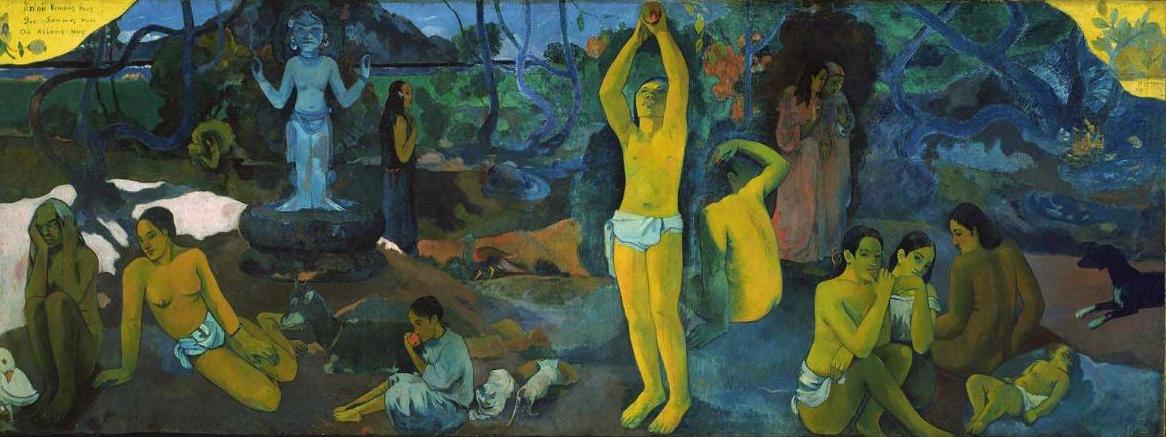You may be aware that I also maintain a math & science & philosophy blog... I have to admit that I sometimes regret not having integrated the latter blog into this one, which is my first and most important blog. But an important reason for not doing so was a technical one: Blogger does not support LaTeX, which is the formatting standard for mathematics and the exact sciences in general.
The drawback is the artificial separation between my thoughts on art and my thoughts on philosophy that sometimes results. After all, I consider art to be a profound form of philosophy, not less so for (mostly) being non-verbal. I have long been wanting to write something about the relation between art and philosophy, but in a way I was held back by the fact that I had already written something on that subject...in Dutch.
In my last year as a student of mathematics, I had to write a philosophy paper. Philosophy was quite an extensive requirement at the time, to obtain a Master's degree in math. I don't know how things stand nowadays. Now, as a math student I seldom went to math classes, preferring to study for my exams from the literature, since already then I devoted more time to my artistic endeavours. (I had already been to Art College prior to my math studies). But I did attend the philosophy classes faithfully, since philosophy has always interested me greatly.
The writing of a philosophy paper I found almost harder than the writing of my Master's thesis. I still remember the mental stress I felt, since I wanted to really write down how I felt about philosophy and our existence on this planet, but I strongly felt that words are often not my preferred medium. How then to put such a philosophy into words? Agonizing, but I did not want to turn in some rehashing of other people's thoughts, and the philosophy requirement could not be evaded.
The result of a month of mental hard labour was a 7000-words paper, a typewritten manuscript for which I used my preferred sketch paper type, which gave a beautiful `aged' feel. Not standard for documents of course. The teacher graded it an A-...which in my natural modesty I found too low:-). But the contents were even more non-standard I think than the exterior, so perhaps I should have been very happy to pass at all.
Nonetheless, the paper actually surprised me, since it came very close to expressing my feelings on philosophy and on our Western culture. I occasionally reread it, and then each time was struck by how close to home the words struck me. Surprisingly to me at least is that I still feel the same way.
So finally, after 22 years, I decided to translate it into English. As a series of posts on my math & science & philosophy blog, titled `We live through maps'.
The paper should go a long way in explaining my feelings on art in relation to verbal philosophy. It also explains why I think we should actually integrate science with art and philosophy much more than we usually do. Finally, it gives me a basis to refer to when I'm writing on art and philosophy. This is really nice about the internet: we can share thoughts, knowledge, pictures, music much more easily than ever before.
nieuwjaarswens voor allen
10 years ago





